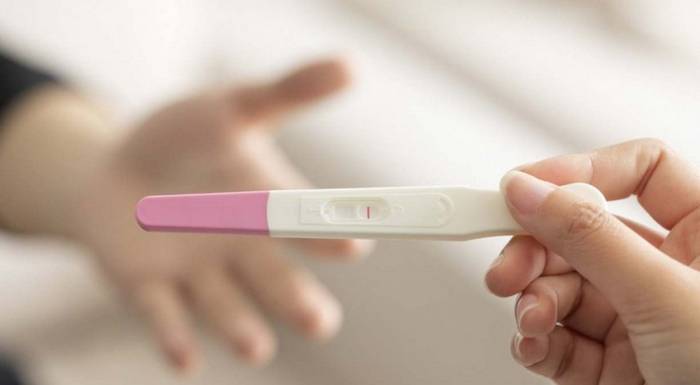Finding out you’re pregnant can be an exciting and anxiety-filled time for many. Timing a pregnancy test is crucial to getting accurate and reliable results. While the possibility of pregnancy can be exciting, or sometimes surprising, it is essential to understand the most appropriate time to take the test, ensuring the accuracy of the result.
In this article, we’ll discuss in detail when the ideal time to take a pregnancy test is, as well as explain the science behind these tests and provide guidance to help you navigate this important journey of motherhood discovery.
How is the pregnancy test done?
The test sold in pharmacies measures the amount of the hormone beta hCG in the urine, which is produced while the woman is pregnant. And if the test is positive, it means that the woman is producing the beta hCG hormone, with a chance that the woman is pregnant.
What time of day should you take a pregnancy test?
It is generally recommended to take the pregnancy test first thing in the morning, in the first pee of the day, as this is when the urine is more concentrated and therefore has higher levels of hCG. This can increase the accuracy of the test, especially if it is done early in pregnancy when hCG levels are still low.
However, most modern pregnancy tests are sensitive enough to detect hCG at any time of the day. It is always important to follow the instructions provided with the test you are using to get the best results. If the result is negative and you still suspect pregnancy, it is recommended to wait a few days and take the test again. If the result is positive, you should make an appointment to see a doctor for confirmation.
How to be sure of pregnancy?

While symptoms may suggest a possible pregnancy, they do not provide absolute confirmation as they may be similar to symptoms of other conditions or even the onset of the menstrual cycle.
Here are some common signs and symptoms of pregnancy:
- Menstrual delay : This is usually the first noticeable sign of pregnancy for many women. However, a delayed or missed period can be caused by many other factors, including stress, weight changes, intense exercise or health issues.
- Breast Tenderness : Hormonal changes in pregnancy can make breasts tender or sore. The color around the nipples (areolas) may darken.
- Fatigue : Increased levels of progesterone during pregnancy can cause fatigue.
- Nausea or vomiting : Commonly called “morning sickness”, these symptoms can occur at any time of the day or night.
- Increased Urinary Frequency : Pregnancy increases the volume of blood in the body, which causes the kidneys to process extra fluid that ends up in the bladder.
- Appetite Changes or Food Aversions : Many women experience cravings or aversions to certain foods during pregnancy.
- Light bleeding or cramping : Some women may have light bleeding and light cramping in early pregnancy, which is sometimes mistaken for the start of their period.
While these symptoms can suggest pregnancy, the only way to be sure is to take a pregnancy test. If you suspect you are pregnant, it is recommended to take a home pregnancy test or make an appointment with a healthcare professional for a blood test.
When should you take the test?
Most home pregnancy tests, which detect the hormone human chorionic gonadotropin (hCG) in the urine, can be done from the first day of missed period. This is because a woman’s hCG level rises rapidly after implantation of the fertilized egg in the uterus, which usually occurs about a week before the next expected menstrual period.
Some more sensitive pregnancy tests claim to be able to detect hCG a few days before your missed period. However, for the most accurate results, it is generally recommended to wait until the first day of your missed period to test. Taking the test too early can lead to a false negative, where the test indicates that you are not pregnant, even if you are, simply because the hCG levels are not yet high enough to be detected.
If you’ve taken a pregnancy test and it’s negative, but you still suspect you might be pregnant, you may want to try taking another test in a few days or a week. If the result is still uncertain or if there are doubts, it is recommended to seek medical advice. A blood test may be done to confirm pregnancy, as this is more sensitive and can detect pregnancy earlier than a urine test.
